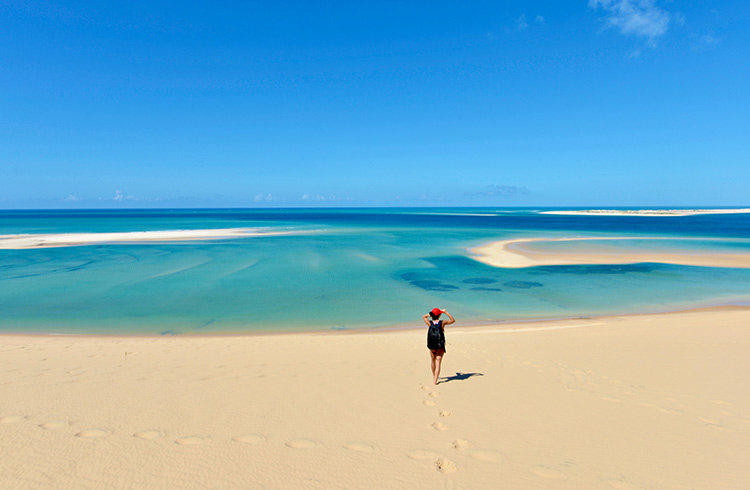Health Risks for Travelers in Mozambique
Coronavirus (COVID-19) and travel: The situation around the world is changing dramatically. Various governments have changed their travel warnings to restrict travel during this time. To understand how this may impact cover under your policy, please go to our FAQs and select your country of residence.
For the latest travel warnings and alerts around the world, read about lockdowns and border restrictions.
How to stay healthy and avoid a trip to hospital in Mozambique. From mosquito-borne diseases to cholera, this is what you need to know.
 Photo © Getty Images/waterotter
Photo © Getty Images/waterotter
There are a number of risks to your health in Mozambique, and it's important you're aware the risk is significant, and the possible diseases are more serious than the common cold or flu.
Be vigilant when traveling to Mozambique and you should be able to avoid any time spent in a hospital. Most diseases can be prevented by using insect repellent, wearing long-sleeved clothing, and using mosquito nets at night. Speak to your doctor before you go, but in Mozambique in particular, anti-malarial medication is a must.
Measles in Mozambique
Unfortunately, Mozambique is still burdened by measles, a disease virtually eradicated in developed countries thanks to early vaccination. In June 2011, the CDC inacted a measles alert for Mozambique.
This highly contagious disease spreads by contact with infected people. Travelers who aren't vaccinated are at risk of getting it and passing it to friends once they come home. It's important that all of your vaccines are up to date.
Yellow fever facts
A yellow fever vaccination certificate is required to be shown upon entry to Mozambique if you are traveling from a country with risk of yellow fever transmission.
Cholera
Cholera is common, especially during the rainy season, and in March 2019 after Cyclone Idai there was an outbreak of cholera, when more than 250 people reported having the diarrheal disease.
It's safest to drink boiled or purified water, and always ask for no ice in your drinks. Keep your mouth closed while showering, and avoid swallowing the water while brushing your teeth. Get medical attention as soon as you feel any symptoms, diarrhea being the main one.
Malaria and dengue fever
Malaria and dengue fever are problems in all regions of the country, but the risks spike in the rainy season from November to May.
There is also the low – but rising – threat of African trypanosomiasis (sleeping sickness), which is transmitted by the tsetse fly. It makes the victims feel uncontrollable drowsiness, but also insomnia at night along with fever, headache, and mood swings. Try to avoid being bitten by any bugs at all times – keep your arms and legs covered, and sleep with a mosquito net.
Natural dangers in Mozambique
Cyclones occasionaly hit the coastal areas during the rainy season. They bring with them torrential rain, strong winds and can destroy homes, schools, hospitals, flood cities, and leave thousands homeless. If a cyclone warning is issued while you're in Mozambique, seek sturdy shelter and follow alerts from your embassy.
Stay up to date with local news on the weather and political situation while you are traveling here.
Get a travel insurance quote for Mozambique
You can buy at home or while traveling, and claim online from anywhere in the world. With 150+ adventure activities covered and 24/7 emergency assistance.
Simple and flexible travel insurance
You can buy at home or while traveling, and claim online from anywhere in the world. With 150+ adventure activities covered and 24/7 emergency assistance.
Get a quote
No Comments